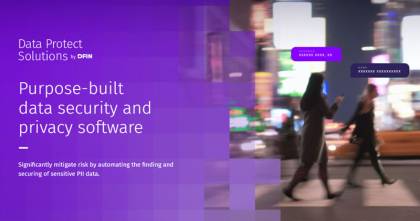Due diligence preparation is one of the most important parts of any deal, whether it's a SPAC, IPO, or M&A. In the due diligence phase, potential investors research a company. They analyze financial statements, dig into proprietary information, and perform all the necessary investigations to make sure that the company is presenting itself accurately and a deal can proceed. Increasingly, this sort of probing is conducted virtually in what's known as a virtual data room, or VDR.
What is a due diligence data room? Learn more about the role of the virtual data room in a due diligence process and the benefits of a VDR.
Data Room Due Diligence: When Is it Necessary?
The concept of a virtual data room is fairly straightforward: It's a central repository for all data relevant to the deal. By using a virtual data repository or data room for this important task, all relevant parties can access the documentation remotely. This means that personnel can examine the documentation on their own timelines and schedules, rather than gathering during pre-set due diligence sessions. This allows parties to be thorough and take their time, which serves the purpose of the due diligence process.
Any deal deserves a due diligence process, during which the interested parties can perform the research and analysis necessary to vet the deal.
Due Diligence Data Room Checklist: What Documents Do I Need?
Deals aren't one size fits all. Each deal will have its own considerations that affect the type of data that is required during the due diligence process. That said, a checklist approach to the due diligence preparation can help you ensure completeness when you're getting ready to set up a VDR.
These are the four main categories of documents you'll want to have for the VDR due diligence phase, with examples of commonly used documents found within each:
1. Business information documents: These documents describe the company's history and current operations. You'll typically find documents such as:
- Articles of Incorporation
- Company trademark, intellectual property, and patents
- Business licenses or permits
- Shareholder certificates
2. Financial documents: Financial documents are the heart of the deal. They include:
- Business plans
- Financial statements
- Documentation regarding business loans and other debts
3. Human Resources (HR) documents: HR documents cover a business's most important assets — its people. Here, you'll want to gather:
- Employee-facing policies, from paid time off to health and safety to internal training
- Company benefits
- Resumes of key personnel
4. Legal documents: Legal documents reflect any formalized, legal arrangements regarding a business's operations. These include:
- Real estate lease agreements
- Legal settlements
- Agreements with vendors and distributors
- Status updates on any pending legal cases
Virtual Data Room Due Diligence Benefits
There are many benefits of using a virtual data room for due diligence. Review the common benefits that companies report when they switch from a physical to virtual data room for due diligence:
- Built-in security: Security is paramount to any deal. After all, you're talking about proprietary business information and intellectual property! If the security of the data room were compromised in any way, the company valuation could tank, and the deal could fall apart. VDRs are the first-line choice for security reasons since they tend to meet one or more security and compliance standards.
- Access control: Access control is critical to security. Knowing who has access to documents and when they were active in the VDR keeps the process transparent. It provides safeguards against insider threats or user errors. Lastly, it helps teams stay organized: The ability to see who was in the VDR and what they did acts as a project status update for team members who may not be in the same physical location.
- Superior setup and file management: If you've ever participated in a physical data room, you know how clunky the file management process can be. Sure, things may be organized, but that means lots of boxes, binders, and folders to schlep to the site and set up for review. The digital process helps streamline file management with features such as automated ingestion or drag-and-drop uploads.
- Search and index features: It's simple to set up data and just as easy for the other side to review it, thanks to features such as in-document text search, indexing, and export to PDF.
- Faster way to handle requests: When VDRs have commenting features, one side can leave notes about information they'd like to see. The other side can review and respond to outstanding questions from within the data room. Adopting this approach for requests helps keep all communication in one centralized channel.
Understanding the role of a virtual data room in the due diligence process can help you prepare for the next deal with confidence. While many deals proceed quickly, they have a lot of moving parts. The above checklist of documents should help all employees gather the relevant information quickly and easily.


